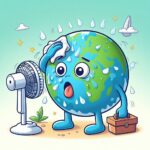口は禍の元とは?
「口は禍の元(くちはわざわいのもと)」とは、「不用意な発言が災いを招く原因になること」を意味することわざです。自分の言葉が思わぬトラブルや問題を引き起こしてしまうことがあるため、言動には注意が必要だという教訓が込められています。
このことわざの背景
人の発言は、相手にさまざまな影響を与えます。ちょっとした言葉が相手を傷つけたり、不快にさせたりすることもあれば、発言が誤解されて広まり、思わぬトラブルに発展することもあります。「口は禍の元」は、そうした経験や教訓から生まれた言葉であり、無意識に出た一言が災いをもたらす原因になることがあるため、言葉には気をつけるべきだという注意喚起の意味を持っています。
この表現の使われ方
「口は禍の元」は、次のような場面で使われます。
不用意な発言でトラブルが生じたとき
何気なく話したことが誤解を生んだり、他人を傷つけたりして、トラブルに発展してしまった場合に、「口は禍の元だ」と振り返ります。例えば、他人の秘密をつい話してしまい、それが大問題に発展した場合などが該当します。
失言や軽率な発言への警告
言葉に気をつけないと問題が起きることを戒めるために、「口は禍の元だから、気をつけて発言した方がいいよ」といった形で忠告する場面にも使います。人の噂話や批判など、発言に気をつけるよう促す際に使用されます。
話さない方が良い状況でのアドバイス
場面によっては、自分の意見や考えをむやみに話さない方が良い場合があります。例えば、繊細な話題や誤解を招きやすいテーマについて、口を慎むように促す際に使われます。
注意点
「口は禍の元」は、特に相手を傷つけたり、誤解を生む発言に対する警告として使われることが多く、慎重に言葉を選ぶことの重要性を示しています。しかし、これは「話さない方が良い」という意味ではなく、発言の内容や場面を考慮して、適切な言葉遣いをすることが大切だという教訓を含んでいます。
類似表現
言わぬが花
言わない方が良いこともあるという意味で、特に感情的な話題やデリケートな話題で使用されます。
覆水盆に返らず
一度言ったことや起きたことは取り返せないという意味で、発言や行動に気をつけることを促します。
「口は禍の元」は、何気ない一言が大きな問題を引き起こすことがあるため、言葉遣いには注意が必要だという教訓を表すことわざです。日常の会話や職場での発言において、慎重に言葉を選ぶことの大切さを伝えています。人との関係を良好に保つために、余計な一言を控え、思いやりのある言葉遣いを心がけることが大切だということを教えてくれる表現です。
The proverb “Kuchi wa wa tamawai no moto” (“one’s mouth is the source of misfortune”) means that one’s unintentional words can cause disasters. It is a lesson that we need to be careful in what we say and do because our words can cause unexpected troubles and problems.
Background of this proverb
What one says can affect others in many ways. A small word can hurt or offend others, or a comment can be misunderstood and spread, leading to unexpected trouble. The phrase “one’s words are the source of misfortune” was born from such experiences and lessons learned, and is meant as a reminder to be careful with one’s words, as one’s unintentional words can be the cause of misfortune.How this expression is used
This expression is used in the following situations.When an unintentional remark causes trouble:
When a casual remark causes misunderstanding or harm to others and leads to trouble, we look back and say, “Mouth is the source of misfortune. For example, when you accidentally tell someone else’s secret, and it turns out to be a big problem.A warning against gaffes and thoughtless remarks:
To warn people that problems can occur if they are not careful with their words, it is also used in situations where advice is given in the form of, “Your mouth is the source of misfortune, so you should be careful with what you say. Used to urge people to be careful about what they say, such as gossiping or criticizing others.Advice in situations where it is better not to speak:
In some situations, it is better not to speak your opinion or thoughts unnecessarily. For example, when you are urging someone to refrain from speaking on a sensitive or misleading subject.Cautionary Note
The phrase “Out of the mouth comes evil” is often used as a warning against speaking out, especially when it is hurtful or misleading, and indicates the importance of choosing one’s words carefully. However, this does not mean that it is better not to speak, but rather contains the lesson that it is important to use appropriate language, taking into consideration the content of the statement and the situation.Similar expressions
Don’t say it, but don’t do it” means that some things are better left unsaid, and is used especially on emotional or sensitive topics.
Kosui-bon ni kiranai” means that once something has been said or happened, it cannot be undone, and encourages people to be careful about what they say or do.Conclusion
The saying, “Out of the mouth comes evil,” is a reminder to be careful with what we say, because a casual remark can cause a big problem. It conveys the importance of choosing one’s words carefully in daily conversation and in one’s speech at work. This expression teaches us that it is important to refrain from saying unnecessary words and to be considerate in our language in order to maintain good relationships with others.
AIが描いた「口は禍の元」






















コメント